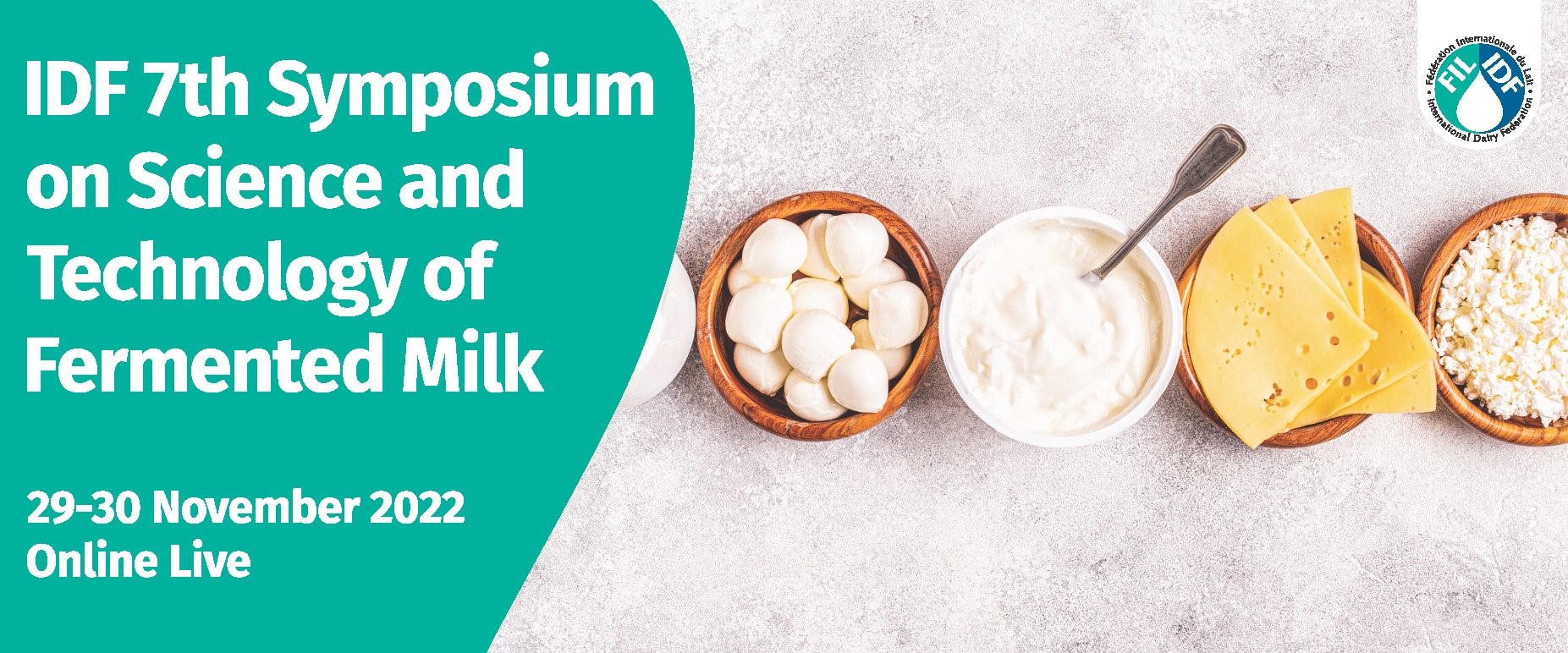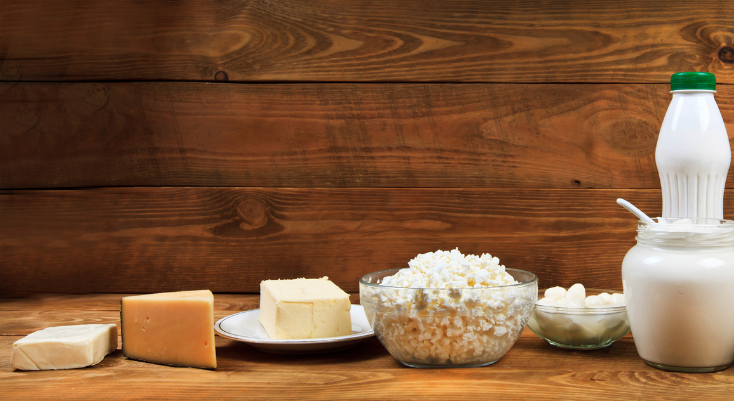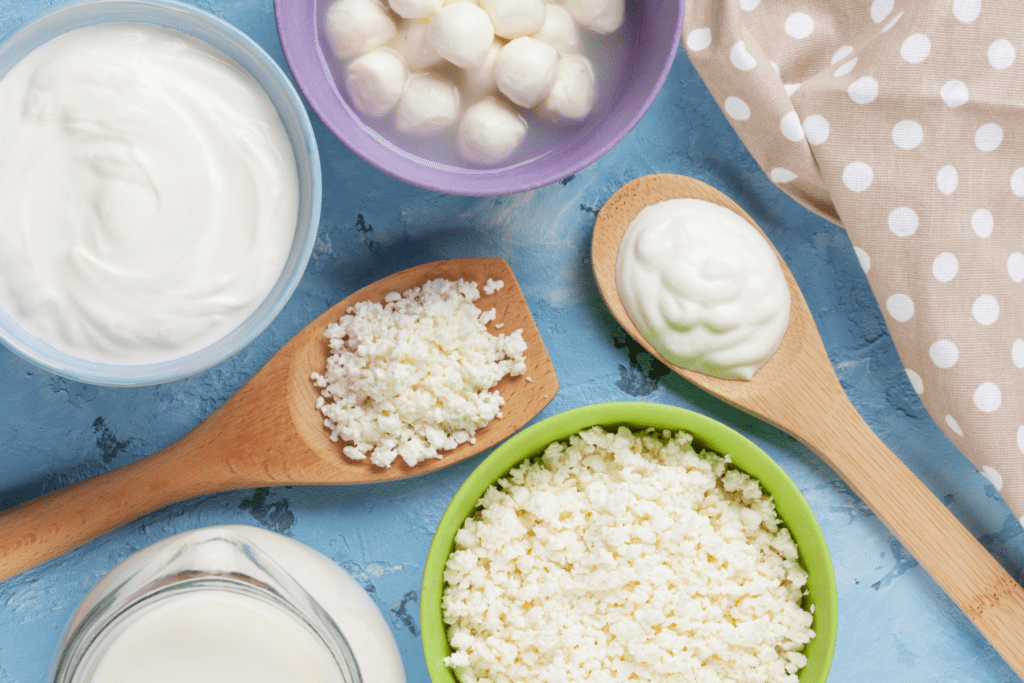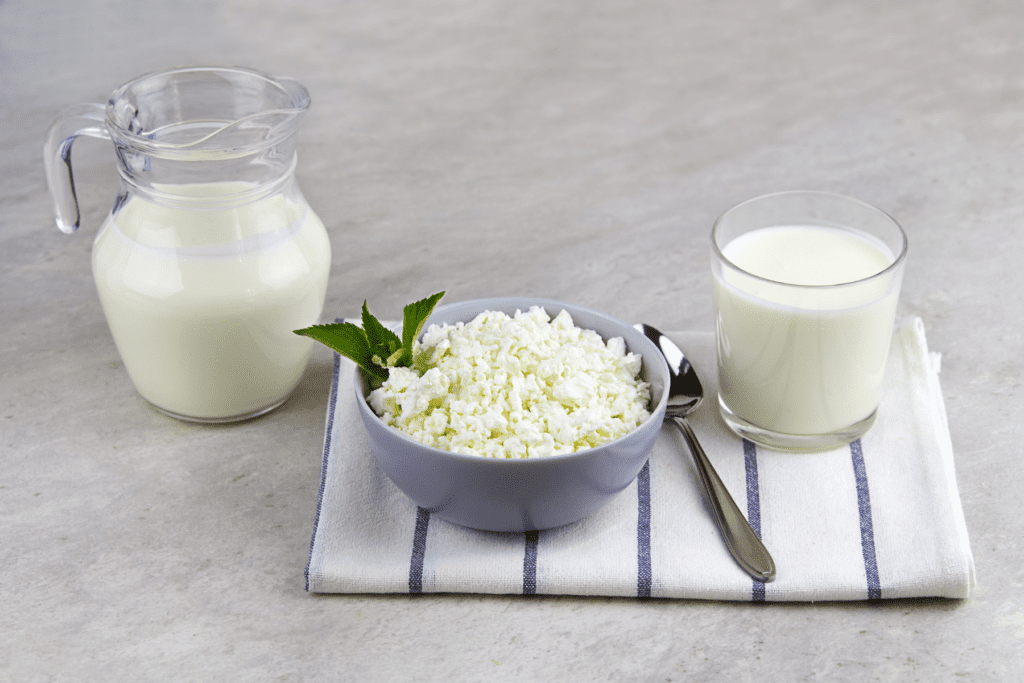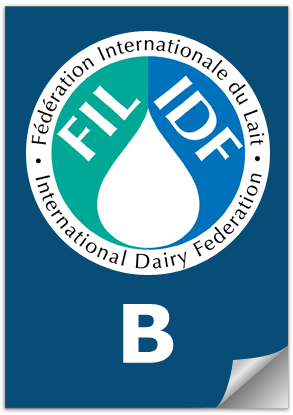On November 29 -30, 2022, the International Dairy Federation hosted the 7th Symposium on Science and Technology of Fermented Milk online. The event had over 250 registrants from 40 different countries around the world. During two days, more than 150 attendees joined the oral sessions delivered by 32 experts, both guest speakers and selected from abstract submission. The symposium was divided into 4 main sessions; namely: New developments and opportunities in fermented dairy, Innovation in fermented dairy for human health, Microstructure of fermented milks (4th IDF Symposium on Microstructure of Dairy Products – see below), and Exploration of novel ingredients and processes for fermented dairy. The symposium also included several poster sessions, in which the abstract-selected presenters were able to discuss live their posters through the interactive platform used.
“The increased research and innovation on fermented dairy and their potential contribution to gastrointestinal microbiota modulation and positive impact on human nutrition and health is a driving force for scientists and experts all over the world. With this 7th symposium we aim to generate greater knowledge exchange and enlightening discussions on their growing role in diets for all ages”, said IDF Director General, Caroline Emond, during the event opening.
The role of yogurt and fermented milk on human health
One of the key topics addressed during the event was the positive impact of fermented dairy, particularly yogurts, on human nutrition and health. “Eating yogurt is associated with better health. A causal relationship exists between lactose tolerance and eating yogurt, and consistent associations exist between fermented milk consumption and lower risk of certain diseases”, affirmed Dennis Savaiano, a Virginia C. Meredith Professor of Nutrition at Purdue University, and one of the keynote speakers of session 2: Innovation in fermented dairy for human health.
Dr. Chris Cifelli, Senior Vice President of Nutrition Research at the US National Dairy Council, agreed with Savaiano’s vision: “Fermented dairy foods have been a staple in human diets for thousands of years. Besides taste and functional considerations, scientific evidence shows that yogurt and fermented dairy are linked with improved health. And, interestingly, not just digestive health but also immune function, mental health, cardiovascular health and more”.
4th IDF Symposium on Microstructure of Dairy Products
The 4th IDF Symposium on Microstructure of Dairy Products was part of the programme during session 3, which focused on the latest research on the microstructure of fermented milks. “The microstructure of fermented milk is the key to product texture, rheology and sensory properties. Microbial exopolysaccharides are an additional factor of influence, explained Dr. Doris Jaros, Senior researcher and private lecturer at Technische Universitaet in Dresden, Germany. Her colleague Dr. Georg Surber, Research Associate at the same university, added: “Exopolysaccharides from lactic acid bacteria are used to improve the texture of fermented milk”, as he presented the key factors for their techno-functionality in stirred gels.
Exploration of novel ingredients and processes for fermented dairy
The last session of the symposium was focused on the exploration of novel ingredients and processes for fermented dairy. “We are harnessing the power and diversity of microbes to improve our food experience and to create more natural ‘clean-label’ products for the more health-conscious consumer”, addressed IDF expert and Member of the Standing Committee of Microbiological Hygiene, Dr. Olivia McAuliffe. Dr. McAuliffe is the Principal Research Officer at the Teagasc Food Research Centre in Cork, Ireland, where she leads a research programme on Cultures, Fermentation and Biotransformation.
This session also included the participation of Dr. Kommineni, Sr. Research and Innovation Manager for Yogurt & Fermented Dairy at Danone North America. “The growing consumer desire for high protein – low sugar foods are an excellent opportunity for the dairy industry to develop high protein fermented foods such as yogurts”, he explained. “However, developing these products requires novel processing technologies and functional dairy ingredients to overcome taste, texture, and processability challenges with high protein”, he added.
Regulation and Marketing trends
Other interesting topics were addressed as the regulatory situation in different regions of the world. In this sense, the symposium included the active participation of the International Probiotics Association (IPA), through its Executive Director, George Paraskevakos, and the Executive Director of IPA Europe, Rosanna Pecere. “Probiotic market sales continue to increase as research and science continue to show unequivocally the benefits they can offer. There are divergences around the world in regulating these beneficial bacteria and the IPA is continually working to be the global voice for probiotics”, stated Mr. Paraskevakos.
Accordingly, Ms. Pecere expressed: “Probiotics have received legitimate attention from regulatory authorities worldwide. The demand for probiotic yogurts, fermented milk and dairy-based drinks is expected to continue to dominate the probiotics market. However, the lack of a clear legal framework on probiotics in the EU does not meet the consumer’s demand for better information on food products”.
Marketing of fermented dairy was another topic addressed during the Symposium, as the interesting presentation by Serena Schaffner, Senior Vice President of Communications at Dairy Management, Inc. showed. Ms. Schaffner analysed the attitudes of consumers towards fermented dairy, particularly among Millennials and Gen Z, and the jobs they expect in the dairy industry. She highlighted how important is “to translate science to compellingly reach them on their own terms”.
Best oral and poster presentations
Two awards for the best oral and poster presentations were granted during the IDF 7th Symposium on Science and Technology of Fermented milk. The presentations were of outstanding high quality, both in the support used by the presenters as well as the ability of the presenters to get their message across.
The best oral presentation was granted to Davor Daniloski, PhD student at Victoria University, Australia & Teagasc Food Research Centre, Ireland, for his presentation on “The function of β-casein phenotype on the rheological characteristics and structural properties of acid-induced milk gels”.
The best poster presentation prize was awarded to Siwar Nahali, PhD student at STELA Dairy Research Center, Institute of Nutrition and Functional Foods (INAF), Department of Food Science, Université Laval, Québec, Canada, for her poster on the “Effects of homopolysaccharides (HoPS) produced by Lactic acid bacteria (LAB) on the rheological properties of stirred yogurts”.
The awards were sponsored by Ch. Hansen, Denmark.
The IDF 7th Symposium on Science and Technology of Fermented milk came to an end with the announcement of the awards. “These two days showed the outstanding scientific research on fermented dairy that is being performed all over the world as well as the growing interest in these types of products from consumers from all regions”, concluded David Everett, IDF’s SPCC member of Dairy Science and Technology, who chaired one of the sessions.
Those who missed the event will have the chance to access the recordings of the oral presentations on demand shortly at www.fil-idf.org




